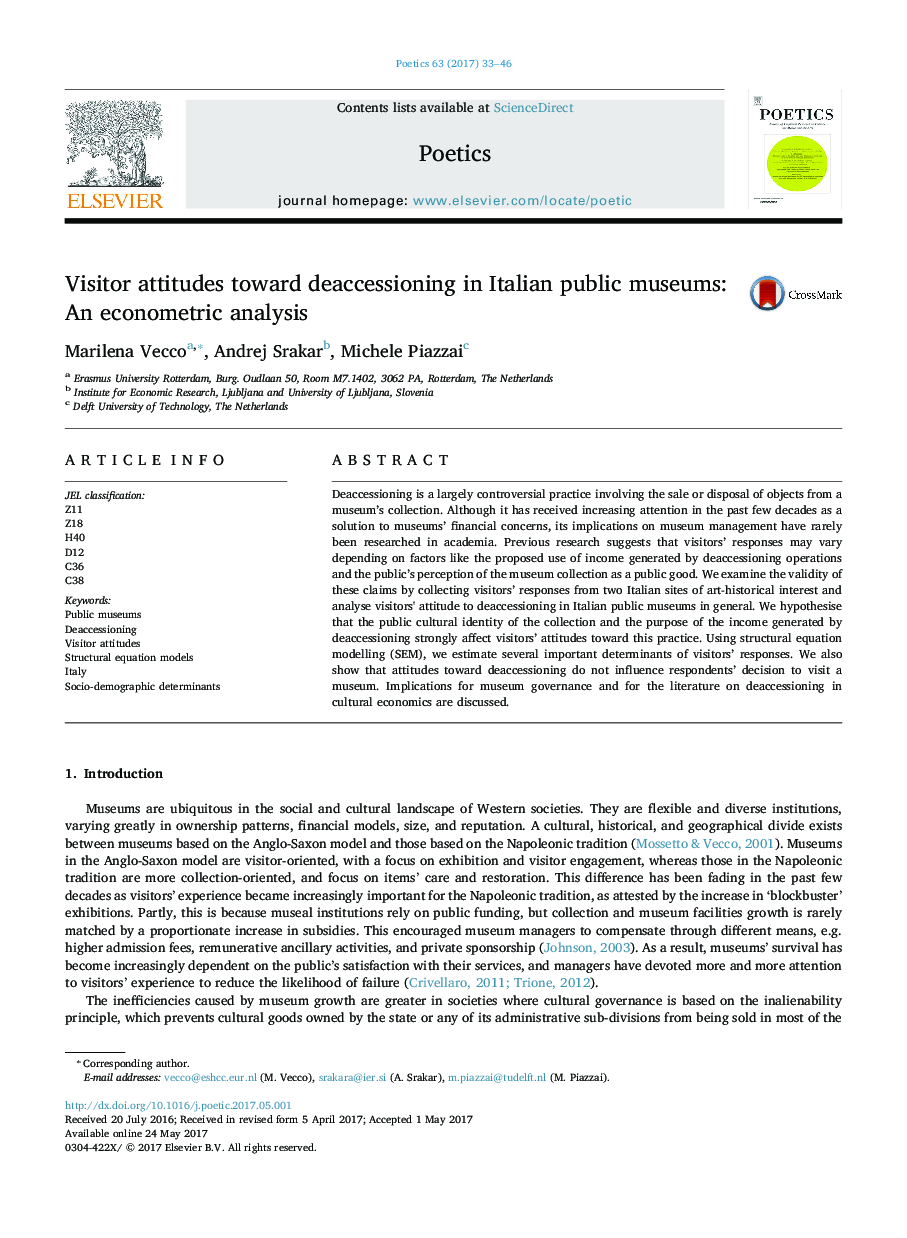| Article ID | Journal | Published Year | Pages | File Type |
|---|---|---|---|---|
| 5126695 | Poetics | 2017 | 14 Pages |
â¢First empirical analysis of attitudes toward deaccessioning among museum visitors done so far.â¢Public identity of collection and purpose of the income generated by deaccessioning strongly affect visitors' attitudes toward this practice.â¢Age is the only relevant socio-demographic predictor of attitudes toward deaccessioning.â¢Attitudes toward deaccessioning do not influence the number or probability of museum visits.
Deaccessioning is a largely controversial practice involving the sale or disposal of objects from a museum's collection. Although it has received increasing attention in the past few decades as a solution to museums' financial concerns, its implications on museum management have rarely been researched in academia. Previous research suggests that visitors' responses may vary depending on factors like the proposed use of income generated by deaccessioning operations and the public's perception of the museum collection as a public good. We examine the validity of these claims by collecting visitors' responses from two Italian sites of art-historical interest and analyse visitors' attitude to deaccessioning in Italian public museums in general. We hypothesise that the public cultural identity of the collection and the purpose of the income generated by deaccessioning strongly affect visitors' attitudes toward this practice. Using structural equation modelling (SEM), we estimate several important determinants of visitors' responses. We also show that attitudes toward deaccessioning do not influence respondents' decision to visit a museum. Implications for museum governance and for the literature on deaccessioning in cultural economics are discussed.
